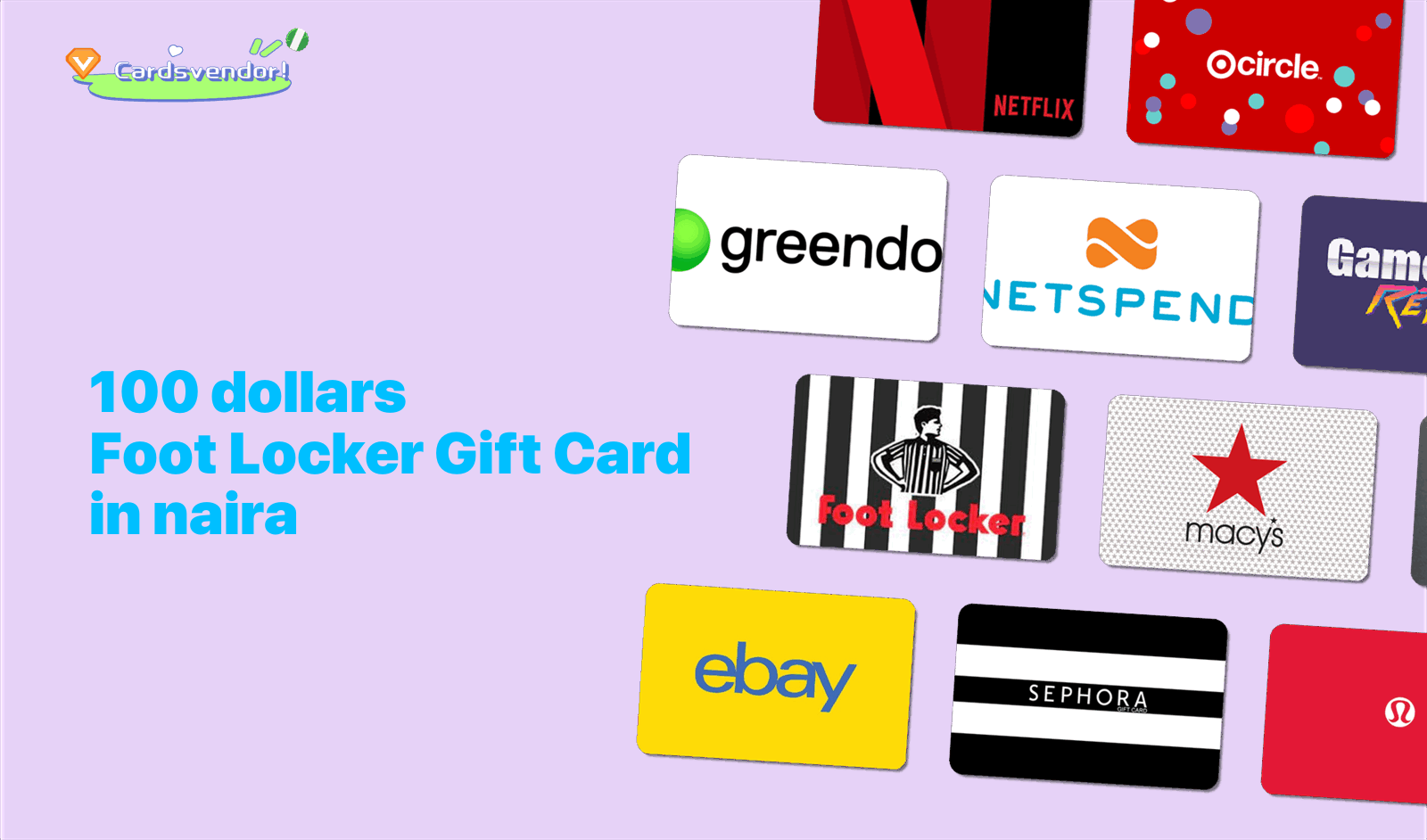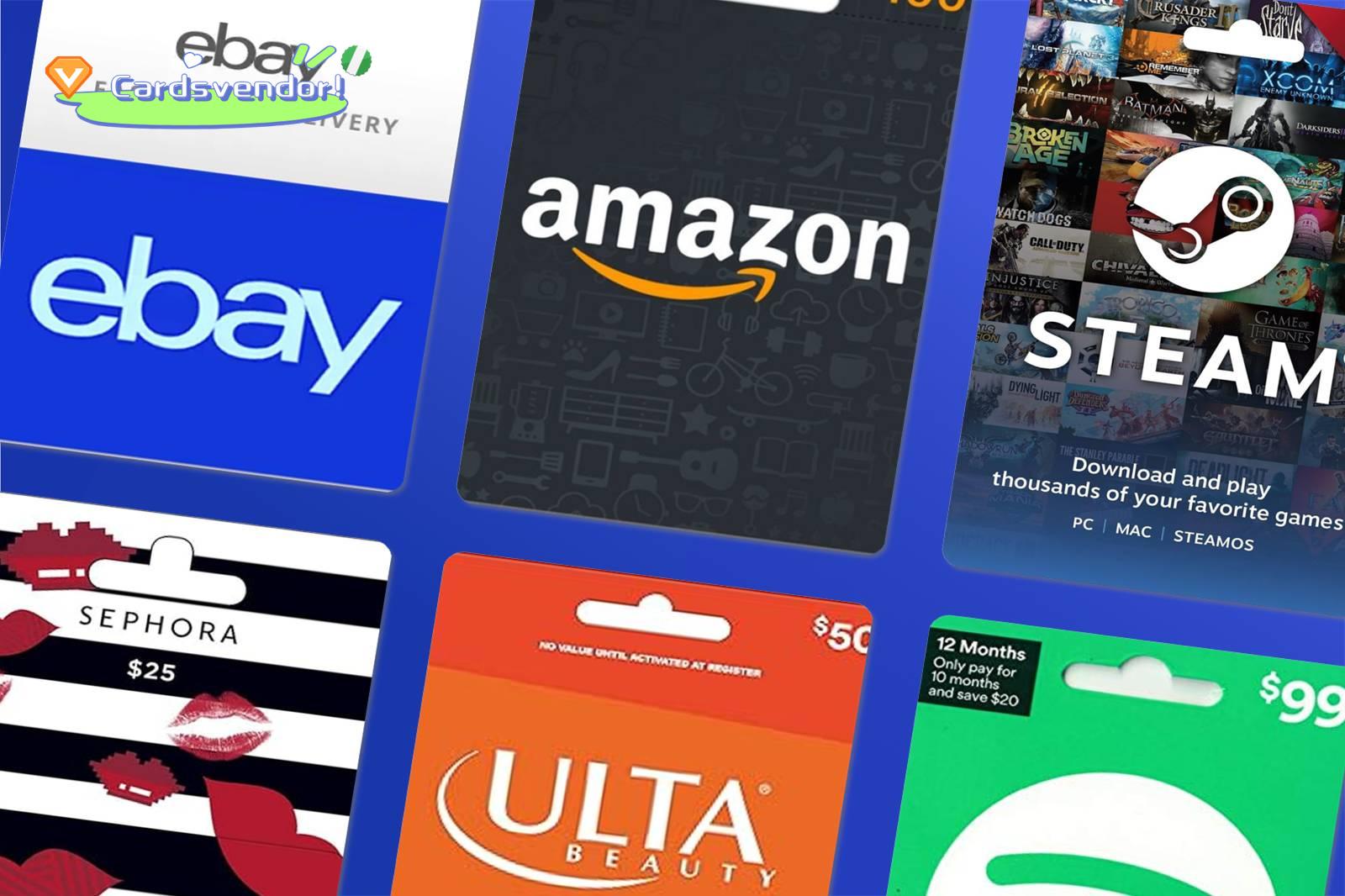
What Are Foot Locker Gift Cards?
The Foot Locker Gift Card is a pre-paid card that allows shoppers to make purchases at Foot Locker, its subsidiaries, and affiliated stores. It’s a convenient way to gift someone with a choice of shoes, apparel, and accessories without specifying the exact item. Recipients can use the card for any amount up to its balance, and any remaining balance can be used for future purchases. The card is reloadable, making it a versatile gift option for shopping enthusiasts.
The USD FootLocker gift card is a pre-paid card that can be used to make purchases at FootLocker, a retail store specializing in sneakers and athletic apparel. It functions similarly to a credit or debit card, allowing the cardholder to spend up to the amount loaded onto the card without needing additional payment methods. The card is convenient for gift-givers who want to give someone the flexibility to choose their own footwear or clothing items from FootLocker’s selection.
How to Redeem Foot Locker’s Gift Cards for Nigerian Naira and Get the Best Deal
Foot Locker Gift Card 100 dollars to Naira Conversion Today
Card Type
$
Naira
Foot Locker
10
11,800 to 13,800
Foot Locker
25
29,500 to 34,500
Foot Locker
30
35,400 to 41,400
Foot Locker
50
59,000 to 69,000
Foot Locker
100
118,000 to 138,000
Foot Locker
200
236,000 to 276,000

In which countries can Foot Locker gift cards be used?
Foot Locker gift cards are generally valid at any Foot Locker store location, as well as at other associated brands within the same retail family such as Kids Foot Locker, Lady Foot Locker, and Champs Sports. However, the specific usage of gift cards may vary by country and region, and it’s advisable to check with local stores or the Foot Locker website for the most accurate and up-to-date information.
How Is Foot Locker Gift Card Rate Determined?
Economic Stability: Nigeria’s economic stability plays a crucial role. A stable economy with low inflation and a strong currency tends to have a more favorable exchange rate. Conversely, economic downturns, high inflation, or political instability can weaken the naira, impacting the card’s value.
Supply and Demand: The availability of Foot Locker Gift Cards in Nigeria and the demand for them affect the exchange rate. If there’s a high demand for these cards and limited supply, their value in naira may increase. Conversely, a surplus of cards can lead to a decrease in their value.
Currency Conversion Rates: The exchange rate between the naira and the dollar directly impacts Foot Locker Gift Cards. Any changes in the official or parallel market exchange rates will influence the cost of purchasing these cards in naira.
Foot Locker’s Pricing Strategy: The US-based company’s pricing strategy and any promotional offers can affect the value of the gift cards. For instance, seasonal discounts or changes in the card’s denomination can influence the exchange rate.
Import Taxes and Regulations: Nigerian import taxes and regulations on foreign currency transactions can affect the cost of purchasing Foot Locker Gift Cards. Higher taxes or stricter regulations can increase the cost, thereby impacting the exchange rate.
Cross-border Transactions: The ease of conducting cross-border transactions also plays a role. High transaction fees or complex processes can make the gift cards less attractive to consumers, potentially affecting their value.
Market Sentiment: The general sentiment in the market towards the Nigerian naira and Foot Locker’s brand can influence the exchange rate. A positive sentiment can strengthen the card’s value, while a negative sentiment can weaken it.
In summary, the exchange rate of Foot Locker Gift Cards in Nigeria is affected by economic stability, supply and demand, currency conversion rates, Foot Locker’s pricing strategy, import taxes, cross-border transaction ease, and market sentiment.
How Is Foot Locker Gift Card Rate Determined?
Economic Conditions: Nigeria’s economic stability and growth rates impact the exchange rate. High inflation or a weak currency can make the Naira weaker against the US Dollar, affecting the card’s value.
Supply and Demand: The availability of Foot Locker Gift Cards in Nigeria influences the market demand. High demand without adequate supply can drive up the price in local currency.
Regulatory Changes: Nigerian government policies, such as currency controls or changes in foreign exchange regulations, can affect the availability and price of gift cards.
Transaction Costs: Excessive transaction fees for currency conversion can increase the cost of purchasing gift cards, potentially affecting their value.
Interbank Exchange Rates: The rates at which banks exchange currencies can vary, and this can directly affect the price of gift cards when converted to local currency.
Interest Rates: Higher interest rates in Nigeria can strengthen the Naira, making gift cards more expensive in Naira terms.
Geopolitical Stability: Nigeria’s geopolitical environment can influence its currency value, as it affects investor confidence and foreign investment.
Market Perception: Consumer and market perceptions about the brand and the local market can influence the demand for Foot Locker Gift Cards, thereby affecting their price.
Understanding these factors helps to predict and manage the exchange rate dynamics of Foot Locker Gift Cards in Nigeria.
References for How much is 100 dollars Foot Locker Gift Card In Nigeria?
